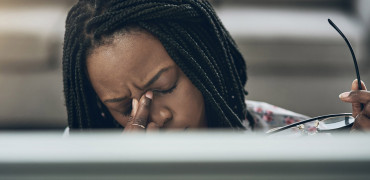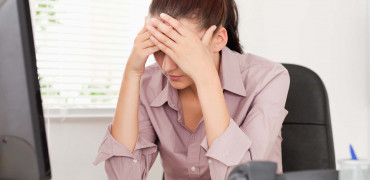In case it passed you by, Monday 18th October was World Menopause Day, an event held on the same day every year to raise awareness of the menopause and the support options available for improving health and wellbeing.
The International Menopause Society (IMS) seeks to encourage women to participate in this awareness raising campaign by sharing resources, telling their stories and organising events in their communities.
The menopause happens to every single woman in some degree or another, and yet no one likes to talk about it.
For many women, the menopause is an isolating and sometimes life-changing experience, and this can be made worse by the lack of any support whether at home, in the community or in their workplace.
To some degree, the menopause happens to every single woman and yet no one likes to talk about it.
Driven out of work
Sky News reported last week that lack of support for women affected by the menopause is forcing some women to leave their jobs.
The report highlighted research carried out for Dr Louise Newson, a menopause expert who runs Newson Health Research and Education – a not-for-profit organisation.
The poll, which surveyed 3,800 women in the UK found that the majority felt that not only did the menopause affect their work, but the months and years leading up to it could have a huge impact on their careers.
99% of the women who responded said that the menopause led to a negative impact on their careers and 18% were off work for more than eight weeks.
Not sure it affects you?
Before you switch off from reading this as it ‘doesn’t affect you’ it’s worth reminding ourselves that it will potentially affect 50% of the population, so you will know someone, either a sister, mother, aunt, colleague or friend, that is being affected.
And it even affects celebrities as we’ve written about before here on The Hub, focusing on Davina McCall who revealed the pain and loneliness of the menopause
In a brave move for a well-known celebrity, Davina bared her soul and laid herself open to talking about the trauma of the menopause in the Channel 4 documentary ‘Sex, myths and the menopause’.
She said she had felt like she was losing it, facing depression, hot flushes and was in a complete mental fog.
Her aim in relating her menopause story was to bust all of the midlife taboos from sex to hormone treatment.
What should construction do?
For those of us in the construction industry, I think there are three key areas that we should focus on to aid the working lives of our female colleagues.
Firstly, 9 out of 10 working women still fee that the menopause has had a negative impact on their career. We all need to talk about this more openly, so that our colleagues no longer feel alone.
Secondly, 1 in 3 women still don’t take the time to visit their doctor when going through the menopause. With a general increase in the issue of wellbeing, we need to encourage our colleagues to talk to their GP.
And thirdly, it’s worth noting that menopausal women are the fastest growing group of workers and there are now an estimated 4.3 million women in this category.
At the same time only 1 in 10 companies have implemented some sort of menopausal policy aimed at supporting women during this period, so we need to examine our own organisations as well.
Turn up / down the cooling
We’ve previously focused on the menopause and how air conditioning can help office workers going through ‘the change’.
Creating a comfortable environment is a clear opportunity to support colleagues and ensuring controllable, accurate access to heating and cooling is the easiest and quickest way to provide relief from hot flushes and discomfort.
But perhaps the most important thing we can all do is recognise the trauma and loneliness that our fellow workers may be going through and campaign for more research and support.
The least we can achieve by doing so is to increase recognition of the menopause and actively look for more ways to support colleagues so they are not going through this alone:
Rachel Lekman is Channel Marketing Manager




